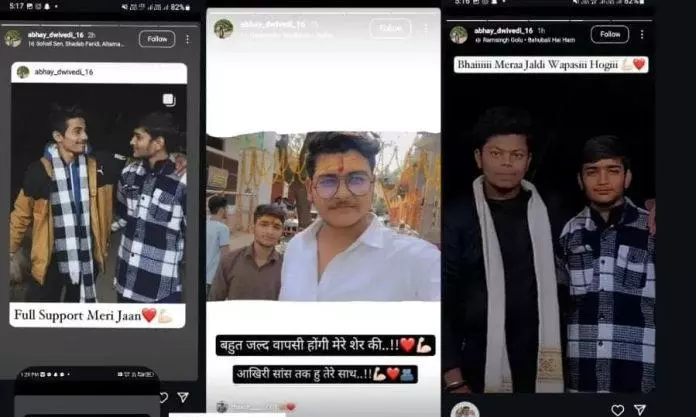
Student’s murder: Applause for accused hints Muslim identity was the target
text_fieldsThe broad daylight killing of 17-year-old Muslim student Arish Khan, and the subsequent celebration—both online and offline—in Fatehpur, Uttar Pradesh, underline the accusation that right-wing Hindutva forces are systematically stigmatising and humiliating the Muslim community in the region, not merely for political gains but to establish their supremacy.
The attack, which took place on 23 July outside Maharshi Vidya Mandir Senior Secondary School, has been described by residents and activists as a targeted assault, intensifying communal tensions in the region, according to Maktoob media.
There was no reason for which Arish was murdered— to some extent lynched—other than his Muslim identity, as the subsequent social media posts and the celebration for the accused, though they were arrested a day later, have been doing the rounds as a normal thing ever since the BJP-led right wing ascended to power, despite the fact that the arrests of the accused are nothing but an encouragement for others.
Arish, a Class 12 student and the son of an electrician, was ambushed moments after stepping out of school by three youths identified as Harshvardhan Pandey, Deepak Savita, and Bharat Sarkar. CCTV footage captured the assailants arriving on a scooter and attacking Arish with sticks and rods, beating him until he lost consciousness. He was rushed to a local hospital in critical condition, where he succumbed to his injuries after 36 hours on 26 July.
While police registered an FIR on 24 July and later arrested all three accused on the day Arish died, the incident has stirred serious concern, with locals alleging that the motive behind the killing was his Muslim identity, Maktoob media reported.
The victim’s family and several community members have claimed that Arish was targeted due to his religious identity, calling the attack a lynching. The subsequent conduct of the accused's supporters has only deepened these concerns.
Following the murder, supporters of the accused organised bike rallies and posted inflammatory slogans and communal abuse on social media, some of which explicitly celebrated the killing. These posts, which included derogatory slurs against Muslims and glorification of the accused, were later deleted, though screenshots were submitted to the police as evidence by Arish’s grandfather, who also filed a second complaint regarding the online incitement.
Although the school principal maintained that the institution had no responsibility in the matter as the crime occurred outside school premises and the attackers were former students, the family and several local residents have criticised the school for its inaction during the critical moments following the assault. They alleged that Arish was not given immediate medical assistance and had to wait until his family and police arrived at the scene.
In the aftermath of the killing, concerns about growing communal hostility in Fatehpur have been exacerbated by reports linking one of the accused, Harshvardhan Pandey, to the Hindutva outfit Bajrang Dal. Residents have also alleged that Arish had previously been subjected to communal slurs by the attackers, adding to the perception that the murder was a premeditated act of hate.
Rights organisations have extended support to the grieving family, with groups such as the Students Islamic Organisation and the Association for Protection of Civil Rights condemning the incident and pledging legal aid. As the investigation proceeds, the community remains on edge, with many fearing that the incident marks a disturbing escalation in communal violence and impunity.


















